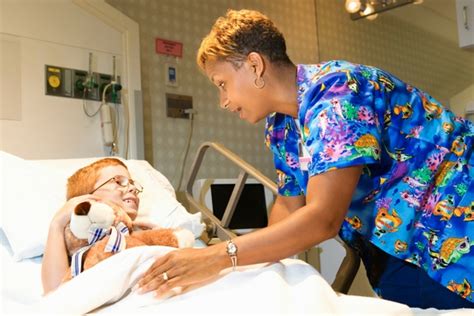The pediatric healthcare field is rapidly growing, with an increasing demand for skilled professionals who can provide high-quality care to infants, children, and adolescents. One of the most in-demand roles in this field is the Patient Care Technician (PCT) in pediatrics. In this article, we will explore the role of a PCT in pediatrics, the skills and qualifications required, and the benefits of pursuing a career in this field.
What is a Patient Care Technician in Pediatrics?

A Patient Care Technician (PCT) in pediatrics is a healthcare professional who works under the supervision of a registered nurse (RN) or a licensed practical nurse (LPN) to provide direct patient care to children and adolescents. PCTs in pediatrics are responsible for taking vital signs, administering medications, performing basic medical procedures, and providing emotional support to young patients and their families.
Key Responsibilities of a PCT in Pediatrics
Some of the key responsibilities of a PCT in pediatrics include:
- Taking vital signs, such as temperature, pulse, and blood pressure
- Administering medications and treatments as prescribed by a physician
- Performing basic medical procedures, such as wound care and phlebotomy
- Providing emotional support and comfort to young patients and their families
- Assisting with daily living activities, such as bathing and feeding
- Maintaining accurate and up-to-date patient records
Skills and Qualifications Required

To become a PCT in pediatrics, you will need to possess certain skills and qualifications. These include:
- A high school diploma or equivalent
- Completion of a patient care technician training program
- Certification as a PCT or a certified nursing assistant (CNA)
- Basic life support (BLS) certification
- Excellent communication and interpersonal skills
- Ability to work effectively in a fast-paced environment
- Compassion and empathy for young patients and their families
Pediatric PCT Training Programs
Pediatric PCT training programs are available at many community colleges, vocational schools, and online institutions. These programs typically include both classroom and clinical training and cover topics such as:
- Pediatric anatomy and physiology
- Pediatric medications and treatments
- Pediatric medical procedures
- Pediatric patient assessment and care
- Communication and interpersonal skills
Benefits of Pursuing a Career as a PCT in Pediatrics

Pursuing a career as a PCT in pediatrics can be a highly rewarding and challenging experience. Some of the benefits of this career include:
- Job stability and growth opportunities
- Competitive salary and benefits
- Opportunity to make a difference in the lives of young patients and their families
- Variety and challenge in the work environment
- Opportunities for advancement and professional development
Pediatric PCT Salary and Job Outlook
According to the Bureau of Labor Statistics (BLS), the median annual salary for PCTs in pediatrics is around $34,000. However, salaries can vary depending on location, employer, and level of experience. The job outlook for PCTs in pediatrics is also positive, with the BLS predicting a 12% growth in employment opportunities through 2028.
Conclusion
In conclusion, a career as a Patient Care Technician in pediatrics can be a highly rewarding and challenging experience. With the right skills and qualifications, you can make a difference in the lives of young patients and their families. If you are interested in pursuing a career in this field, we encourage you to explore pediatric PCT training programs and job opportunities in your area.
Gallery of Pediatric PCT






What is the role of a Patient Care Technician in pediatrics?
+A Patient Care Technician in pediatrics is a healthcare professional who works under the supervision of a registered nurse (RN) or a licensed practical nurse (LPN) to provide direct patient care to children and adolescents.
What are the skills and qualifications required to become a PCT in pediatrics?
+To become a PCT in pediatrics, you will need to possess a high school diploma or equivalent, completion of a patient care technician training program, certification as a PCT or a certified nursing assistant (CNA), and basic life support (BLS) certification.
What is the job outlook for PCTs in pediatrics?
+The job outlook for PCTs in pediatrics is positive, with the Bureau of Labor Statistics (BLS) predicting a 12% growth in employment opportunities through 2028.
